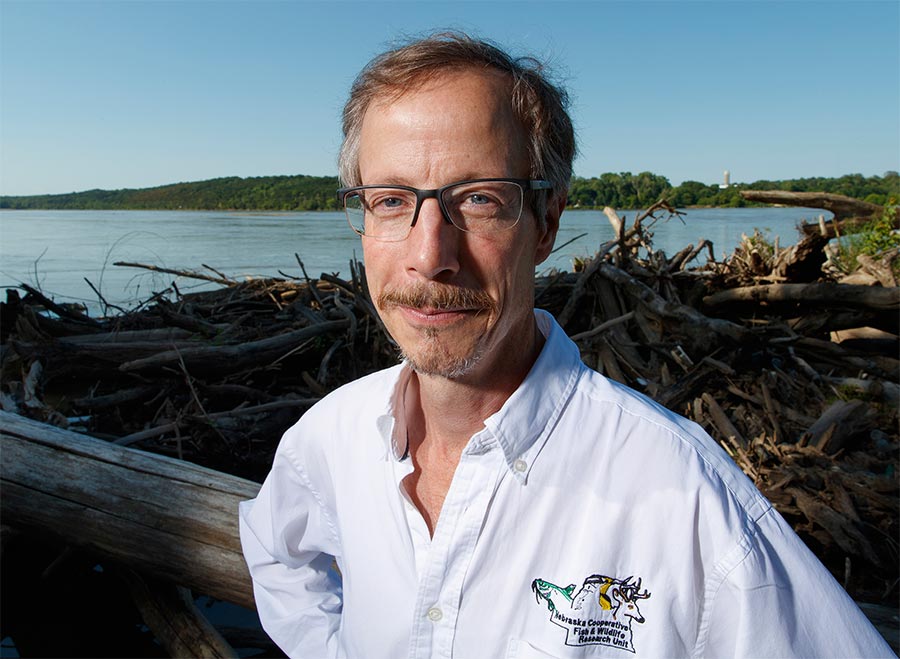 Craig Allen, director of the NRT at Nebraska, has taken the reigns as director also of the university’s new resilience center.
Craig Allen, director of the NRT at Nebraska, has taken the reigns as director also of the university’s new resilience center.
The Center for Resilience in Working Agricultural Landscapes and Nebraska One Health compose the new center formed to meet growing demands on agricultural production by making agro-ecosystems more resilient.
“Resilience is simply a measure of the amount of disturbance a system can withstand before it collapses,” Allen said. “Resilience can be measured and operationalized to explicitly help us solve many of the issues that challenge human well-being in the 21st century.”
Current estimates indicate agricultural production must increase more than 70% by 2050 to meet global demands for food, fuel, feed and fiber.
Nebraska is the ideal experimental laboratory to continue advancing the resilience concept, said Allen, an internationally respected expert on wildlife ecology and conservation. He is on the executive boards of the Resilience Alliance and the Nature Conservancy and is a founding member of the Nebraska Conservation Roundtable.
Allen envisions the center becoming the leading global institution in agricultural resilience, focused on protecting the agricultural systems that feed the world and the health of the people who inhabit it.
A resilience approach generally has some common elements, including
- Working with stakeholders to define key issues and provide a focus
- Using models, if necessary, to help identify limits to acceptable change or thresholds
- Examining the roles of decision-making, customs, rules or regulations for insights and options for building resilience and adapting to changing circumstances.
"We envisioned a center small in terms of personnel, but with a large impact, focused on delivery of research, teaching, outreach and global leadership in the area of resilience of working agricultural landscapes," Allen said.
The university and the resilience center are in a unique position to better develop, integrate and implement theories of resilience with field-based practices. This is because of the global expertise and leadership in both, and the history of blending theory with practical applications to management and production, Allen said. “No other institutions nationally or internationally have an explicit focus on resilience in agricultural systems.”
The multidisciplinary center, which draws on the expertise of many faculty members, emphasizes the resilience of the north-central Great Plains, one of the most productive agricultural regions with one of the most complex irrigation systems in the world.
“The science and technology that have enabled this agricultural production have been exported as a global solution to food insecurity, yet the resilience and long-term sustainability of this model is uncertain and untested,” Allen said. “The importance of this system, and others like it, demands an understanding of its response to stress and where critical tipping points may lay. We don't understand how resilient it is.”
Resilience is not only important to agriculture and natural resources, it pervades disciplines ranging from the natural sciences to the physical and social sciences. Additionally, it has an important link with the goals of Nebraska One Health, he said.
The university's One Health program brings together people with diverse backgrounds, skills and perspectives to improve the health of humans, animals, both wild and domestic, plants and their shared environments. One Health and resilience are related concepts that together create a unique and novel approach to understanding those interactions, Allen said.
“In our world of rapidly changing landscapes and human and animal populations, there is an increasing need for creative local and global solutions to challenges at the human-animal-environment interface.”
— Adapted from an article by Linda Ulrich, Publications Editor at the University of Nebraska-Lincoln


